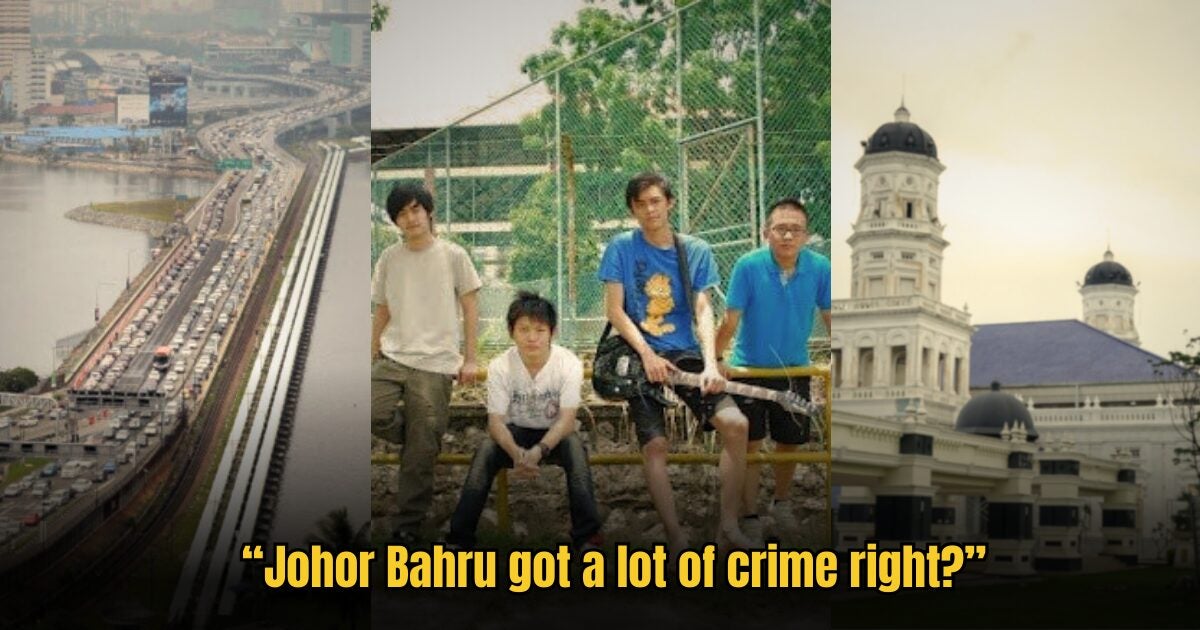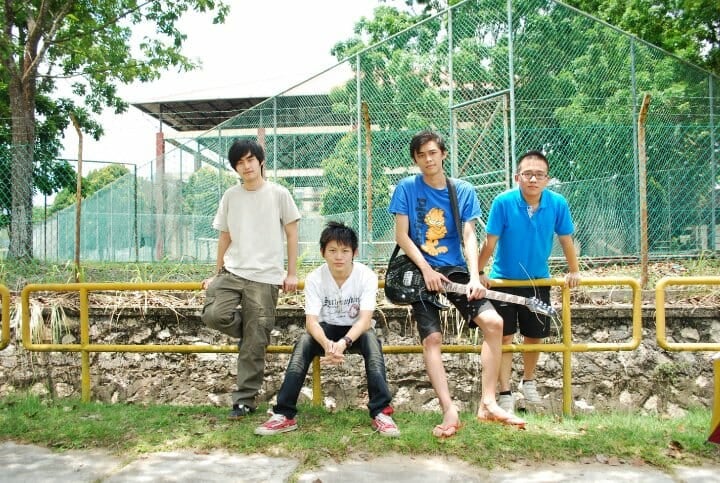Disclaimer: In Real Life is a platform for everyday people to share their experiences and voices. All articles are personal stories and do not necessarily echo In Real Life’s sentiments.

This story is shared by a Malaysian who addresses 3 of the most-asked questions he gets from other Malaysians when they find out he’s from Johor.
I’m a Malaysian boy who’s lived in Johor Bahru practically my whole life.
I would call my upbringing typical as a Malaysian. I went to SRJK and SMK and studied in a local college.
But when I moved to KL, I noticed that people always ask me the same 3 questions when they find out I’m from Johor:
Question #1. “So you always go to Singapore lah?”
The first thing that comes out of literally everyone’s mouth is this — and my answer is always the same: “No, it’s too expensive.”
Have you been to their Universal Studios? It’s like Disneyland on steroids.
A plate of chicken rice, ordinarily RM7-9, would be SGD 5 (RM16).
That’s what you get when you go for world-class dining — it comes with world-class prices.
But did you also know that Johor Bahru’s proximity to Singapore makes everything more expensive?
That’s because our Singaporean neighbours come over all the time to buy their groceries and fill up on cheap petrol.
They’re like that uncle that always comes over to your house to eat your food and never invites you over.
Local businesses price their stock higher, regardless of whether it’s property values or Johor laksa.
But for those of us who are working in JB on a Malaysian paycheck, we get shortchanged, resulting in the gentrification of Johorean neighbourhoods.
Gentrification is a social phenomenon where the rent prices go up, and the lower income people are forced to move elsewhere cheaper.
Now, because only the higher income bracket of people can afford to live here, there’s been a property overhang since 2015.
Most Johoreans face the difficult choice of either working for low salaries in JB, or bite the bullet and apply for work in the pressure cooker that is Singapore.
This leads to me being asked the second most common question:
Question #2 “How come you never work in Singapore?”
For sure, working in Singapore is seen as the holy grail of jobs. A good chunk of us do go down that route, like these Malaysians.
Everyone wants to get a slice of the exchange rate pie (RM3 to SGD1, according to Oanda).
But not enough Malaysians know about the hidden costs and horror stories.
“I was overworked and undervalued,” said Chin Kong.
“I was passed over for promotion because I was Malaysian,” said Thiru.
“I was seen as a cheap and expendable source of labour,” said Zainal.
My dad used to travel in and out of Singapore when I was a kid. He worked as a ship navigator, and later on as a coach and maritime auditor.
I hardly ever saw him on weekdays, and on weekends he would often sleep in. Through the years, I could see the toll his job took on his health.
One night, after a particularly long day at the office, my dad had stopped by a petrol station to catch some Z’s.
When he woke up, he realised his laptop and about SGD500 in cash were missing. So deep was his exhaustion, the thieves took off without even waking him up.
My dad’s experience wasn’t isolated, but a symptom of a social ill that was happening on a larger scale.
Question #3 “Johor Bahru got a lot of crime right?”
Back in the late 90s, Johor Bahru was known for its gang-related violence, bike snatch theft, and car theft cases.
I’ve had friends whose car windows have been smashed and laptops taken. One morning in broad daylight, a colleague walking to work at 6.30am was a victim of snatch theft.
Since then, according to this report, the crime rate has dropped. Nowadays, you’re more likely to see dozens of new building projects littered across the landscape.
In the wake of foreign investment from China, JB has seen a boom in property development.
This has caused the overall living situation to improve, with young families sprouting up in the new developments.
In these new areas, the crime rate is lower than Klang.
So what was living in Johor in the 90s really like?
I lived in Johor Bahru, the capital of Johor. I can’t speak for those from Kulai, Desaru, or Batu Pahat, so I apologise if you feel left out by this article.
For me, JB has always felt like it was simultaneously too large and too small for a kid growing up with a dial-up internet connection and a lack of cultural roots.
“It was a city of suburbs and large-scale town planning,” Zi Xuan, a school friend, reminisced.
Memories of JB were of long pothole-filled roads, the smog rising through the air, the cloudy skies filled with a rusty-yellowish tinge as the sun hid behind them, the overbearing heat as we took the bus to the cluster schools in the heart of the city.
“There was never really a cultural hub, not like KL where you can see the Menara KL from miles away,” said Farid, who owns a cybercafe in Skudai.
“The hub of JB was always the 5-lane causeway leading to Singapore. Everything else just sprouted up around it: malls, hotels, duty-free zones, schools and hospitals.”
I remember sprawling schools filled with loud students, endless tuition classes on weekends, and treating ourselves to Mcdonald’s ice cream at City Square.
Growing up in JB has always made me yearn for something bigger and better.
And I’m not the only one who feels like this.
“I’ve always felt that Johorians collectively have the urge to prove themselves as capable as our KLite or Singaporean counterparts,” said Yi Ying, a bank manager.
It’s true that Johoreans tend to be sidelined in favour of KLites or Singaporeans, who enjoy the perception that they’re more worldly and enlightened.
But based on my knowledge of my peers who have since travelled the world and become accomplished Johoreans in their own right, I think we’ve earned our place.
What’s your own experience of Johor Bahru like?
Share your thoughts in the comments!
Submit your story to ym.efillaerni@olleh and you may be featured on In Real Life Malaysia.
Read also: How I Lost My Life Savings Of RM300,000
How I Lost My Life Savings of RM300,000 After Investing In Triumph FX Scheme
You might also like
More from Real People
‘A RM100 fee cost a company 5 years of revenue’ shares M’sian
This story is about a Malaysian who learned that bureaucracy can be defeated simply by not arguing with it.A billing …
‘I quiet-quit, upskilled, and tripled my salary,’ shares M’sian engineer
This story is about a Malaysian who learned that loyalty without leverage leads nowhere in the corporate world.After years of …
‘I did everything right, and it still wasn’t enough’ shares M’sian graduate
This story is about a Malaysian graduate navigating big dreams in a job market where a degree no longer guarantees …

















